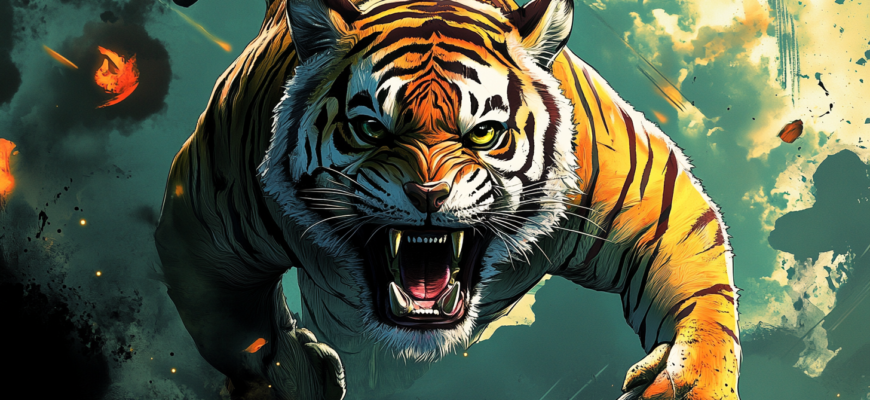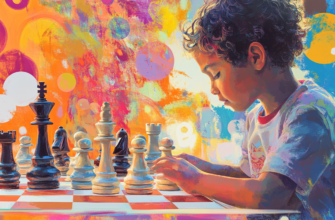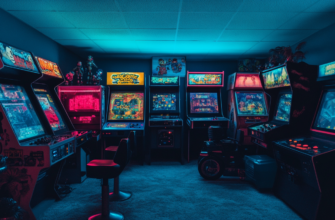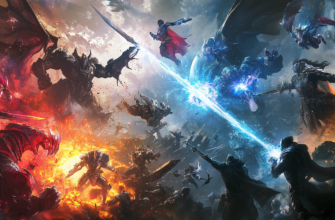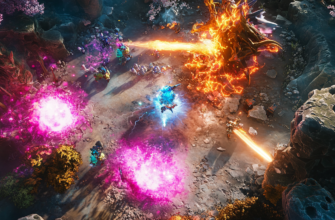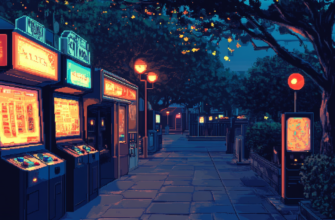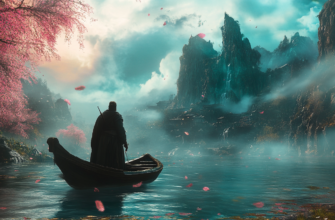- The history of the RPG genre: from board games to modern hits
- Why RPG history matters for gamers
- Key RPG concepts
- Step-by-step guide: How RPGs developed from board games to PC and console
- Step 1: The tabletop era — where it all began
- Step 2: The transition to early computer RPGs
- Step 3: The birth of classic RPG franchises
- Step 4: RPGs enter the modern era
- Practical tips for diving deeper into RPGs
- Conclusion: RPG history is an evolving story
The history of the RPG genre: from board games to modern hits
Hey, fellow gamer! Have you ever wondered how your favorite RPGs evolved into the masterpieces they are today? From the tabletop dice rolls to immersive open-world experiences, the history of RPGs (Role-Playing Games) is richer and more varied than you might think. Today, I’m going to take you on a journey exploring how this beloved genre went from niche board games to dominating the digital realm with modern hits like The Witcher 3, Skyrim, and Final Fantasy.
Why RPG history matters for gamers
Understanding the origins and evolution of RPG games can deepen your appreciation for the genre. Not only does it give context to some of the in-game mechanics we now take for granted, but it also highlights the innovation and imagination that goes into making RPGs the powerhouses they are today.
Key RPG concepts
If you’re not familiar with traditional role-playing games, here’s a crash course on some fundamental terms that are important in understanding RPG history:
- Role-playing: The core of RPGs is assuming the role of a character (or characters). Whether this character is pre-defined or created by the player, the player guides their actions and decisions.
- Character progression: Unlike action or puzzle games, RPGs focus on the evolution of a character, typically through leveling up, gaining skills, or improving stats.
- World-building: RPGs invest heavily in narrative and setting. Whether it’s a high-fantasy kingdom, post-apocalyptic wasteland, or cyberpunk metropolis, the game world is integral to the experience.
- Nonlinear storytelling: RPGs often allow players to branch off the main story, engage in side quests, or make moral decisions that affect the game’s ending.
Step-by-step guide: How RPGs developed from board games to PC and console
Now that we set the stage, let’s break down the evolution of the RPG game format step by step. Buckle up; this is where it gets exciting!
Step 1: The tabletop era — where it all began
In the beginning, RPGs were purely analog. It’s impossible to talk about RPG history without mentioning Dungeons & Dragons (D&D), conceived in 1974 by Gary Gygax and Dave Arneson. Before everything went digital, groups of players would gather around a table and throw dice to determine the outcomes of their characters’ adventures.
D&D wasn’t a traditional “game” in the sense of winners and losers but was instead a framework for collaborative storytelling where players created characters, explored worlds crafted by the “Dungeon Master” (DM), and shaped the game world.
Step 2: The transition to early computer RPGs
As personal computers became more accessible in the late 1970s and early 1980s, developers began attempting to recreate the role-playing experience on screen. Early attempts at RPGs, like Zork (1980), relied heavily on text-based interfaces where the player would type in commands to interact with the game world. These early computer RPGs mirrored the freedom of tabletop RPGs but were very limited by the technology of the time.
Step 3: The birth of classic RPG franchises
Heading into the late 80s and early 90s, the genre blossomed with the arrival of franchises that are still beloved today, particularly in the JRPG and WRPG divisions (Japanese and Western RPG genres, respectively). Let me give you a couple of iconic examples:
- JRPGs: Titles like Final Fantasy (1987) and Dragon Quest (1986) took the core RPG elements of character design, exploration, and leveling up, wrapping them in beautiful (for their time) graphics and deep storytelling. These games emphasized an emotional narrative in fantasy worlds that players could immerse themselves in.
- WRPGs: Meanwhile, on the Western side of the world, influential games like Ultima (1981) and Baldur’s Gate (1998) focused more on player agency, open-world exploration, and intricate choice systems to let players shape their own adventures.
Step 4: RPGs enter the modern era
RPGs continued evolving rapidly in the 2000s and beyond. Now games were no longer confined by pixelated limitations; developers could create vast, lifelike worlds. Here we saw the rise of open-world RPGs and MMORPGs (Massively Multiplayer Online Role-Playing Games), with some calling games like The Elder Scrolls: Morrowind (2002) and World of Warcraft (2004) genre-defining.
Modern RPGs like The Witcher 3: Wild Hunt (2015) and Cyberpunk 2077 (2020) feature complex storylines, breathtaking worlds, and open-ended decision-making, enabling players to live out unique experiences in different environments.
Practical tips for diving deeper into RPGs
So, if after reading about RPG history you’re excited to explore more games—or maybe build out your RPG library further—I’ve got you covered with a few neat tips:
- Start with classic titles: New to RPGs? Ease your way in by playing some of the landmark classics first. Try Chrono Trigger, Baldur’s Gate, or Final Fantasy VII. These will give you a strong sense of core RPG features.
- Create a balanced character: When starting a new RPG, take the time to understand the game’s classes or stats. Create a well-rounded character, especially if you’re new, before experimenting with more complex builds.
- Be patient with the story: Some RPGs take a while to immerse you in their worlds. Resist the urge to rush through dialogue or cinematics to fully enjoy the narrative experience.
- Exploration is key: Don’t just stick to the main questline—exploring side quests and interacting with the game world will give you a much richer experience and often better rewards.
- Join the community: Many RPG fans are part of vibrant communities. Look for community forums, Discord servers, or Reddit groups related to your favorite RPG to share your experiences, seek advice, or discover mods that might improve your gameplay.
Conclusion: RPG history is an evolving story
Whether you’re chucking dice in a tabletop setting or exploring massive digital worlds, RPGs have come a long way, evolving from simple board game mechanics to complex, immersive experiences. The beauty of this genre lies in the freedom it gives you as a player—whether you’re dungeon crawling, slaying dragons, or shaping entire kingdoms, there’s always a new adventure awaiting you.
So, are you ready for your next RPG quest? Don’t just sit there—pick a game, create a character, and dive into a new world today. Soon enough, you’ll be an RPG aficionado, knowing how these games came to be and appreciating them even more.

